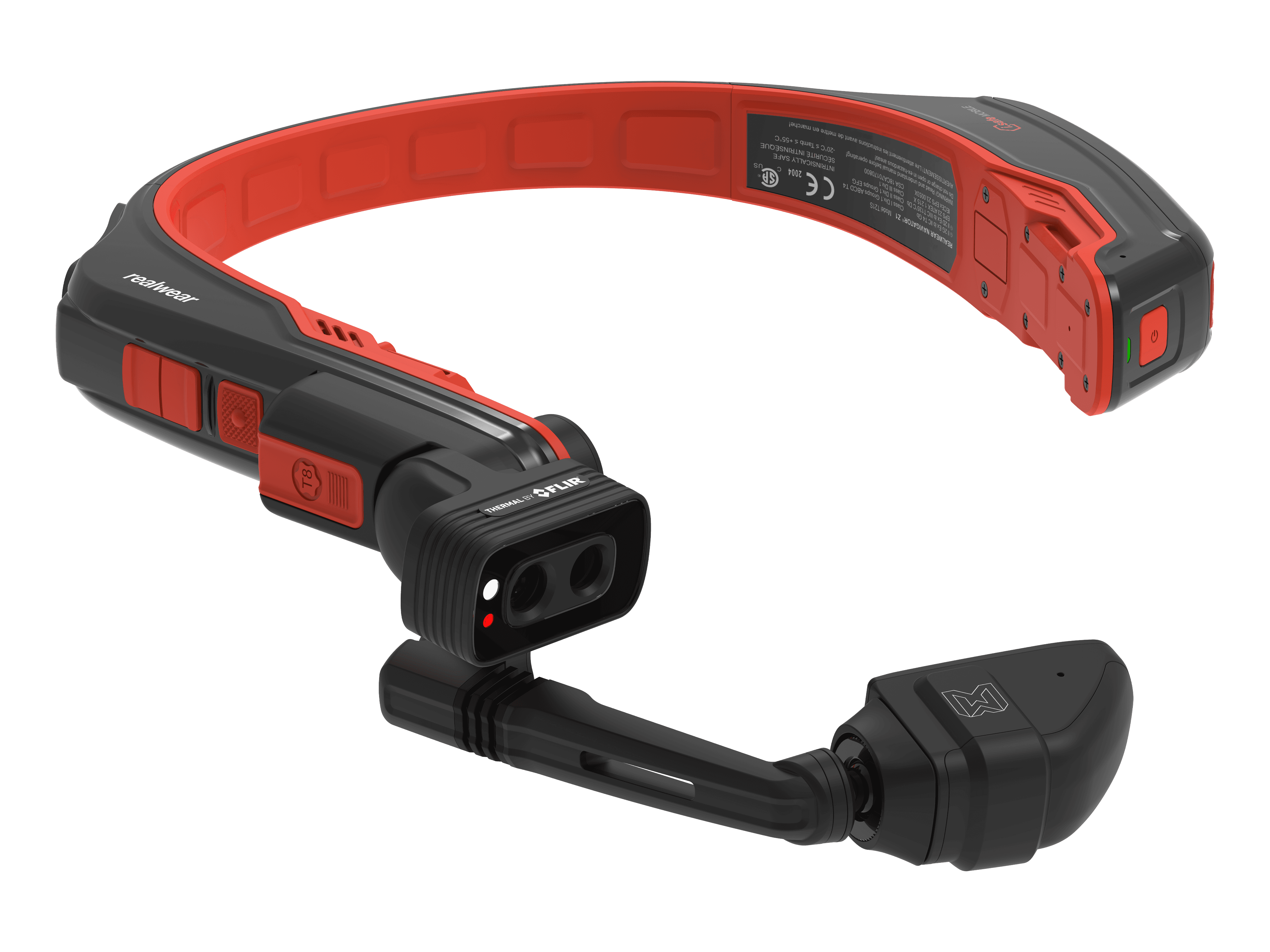Growth of AR Headsets in Field Work
Augmented reality (AR) wearables and industrial smart glasses are redefining how field teams operate in industries like oil & gas, utilities, and manufacturing.
With safety, remote collaboration, and hands-free access to digital tools becoming essential, choosing the right AR headset can impact both productivity and compliance. Two major players have been RealWear and Microsoft HoloLens, but with HoloLens officially discontinued, RealWear has reinforced it's position as the clear, frontline-ready choice for industrial wearables.
Use Case Needs in U.S. Oil & Gas, Utilities, and Manufacturing
American field teams face extreme conditions: heat, cold, high noise, dirty hands, and PPE requirements. They need hands-free solutions that work without touch, function in rugged settings, and integrate with platforms like Microsoft Teams.

RealWear Navigator 520: Strengths for Field Deployment
100% voice-operated, even with loud machinery
Ruggedized to MIL-STD-810H and IP66
Works with hard hats and PPE
Long battery life with hot-swap capability
Seamless integration with Microsoft Teams

RealWear Z1: Certified for Hazardous Environments
For deployments in ATEX Zone 1 environments, such as oil and gas fields, the RealWear Z1 is the only intrinsically safe option. Built to meet strict safety certifications, it is purpose-designed for explosive atmospheres where standard devices are prohibited. The Z1 also brings thermal capabilities to the zone, allowing for more comprehensive and effective inspections in the field.
Why HoloLens Is No Longer Viable for Frontline Work
Microsoft HoloLens 2, while innovative, has officially ceased production. Beyond its discontinuation, it faced real-world limitations:
Heavy at 566g with poor weight distribution
Fragile and non-ruggedized
Not ATEX certified
Short battery life (2–3 hours)
Difficult to use with PPE These factors made it unsuitable for harsh industrial environments even before production ended.

Feature-by-Feature Comparison
Feature | RealWear Navigator 520 | RealWear Navigator Z1 | Microsoft HoloLens |
|---|---|---|---|
Hands-free operation | Fully voice-controlled | Fully voice-controlled | Requires gestures |
Ruggedization | MIL-STD-810H, IP66 | ATEX Zone 1 & C1/D1 | Not field-rated |
PPE Compatibility | Yes | Yes | No |
Battery Life | 8+ hours hot-swappable | Long-life industrial | Less than 3 hours |
Use in Oil & Gas | Not ATEX-certified | Certified for hazardous environments | Not certified |
Availability | Actively supported | Actively supported | Discontinued |
Which Device is Right for You?
For oil and gas, the RealWear Z1 is the clear choice, as it’s the only device in this comparison built for hazardous environments. For other field roles in manufacturing or utilities, the Navigator 520 provides exceptional hands-free performance. HoloLens 2, while once a contender, is no longer being manufactured and even at it's peak, it lacked the rugged, compliant features needed for real-world field deployment.
Want to see RealWear in action? Click here to request a demo.





